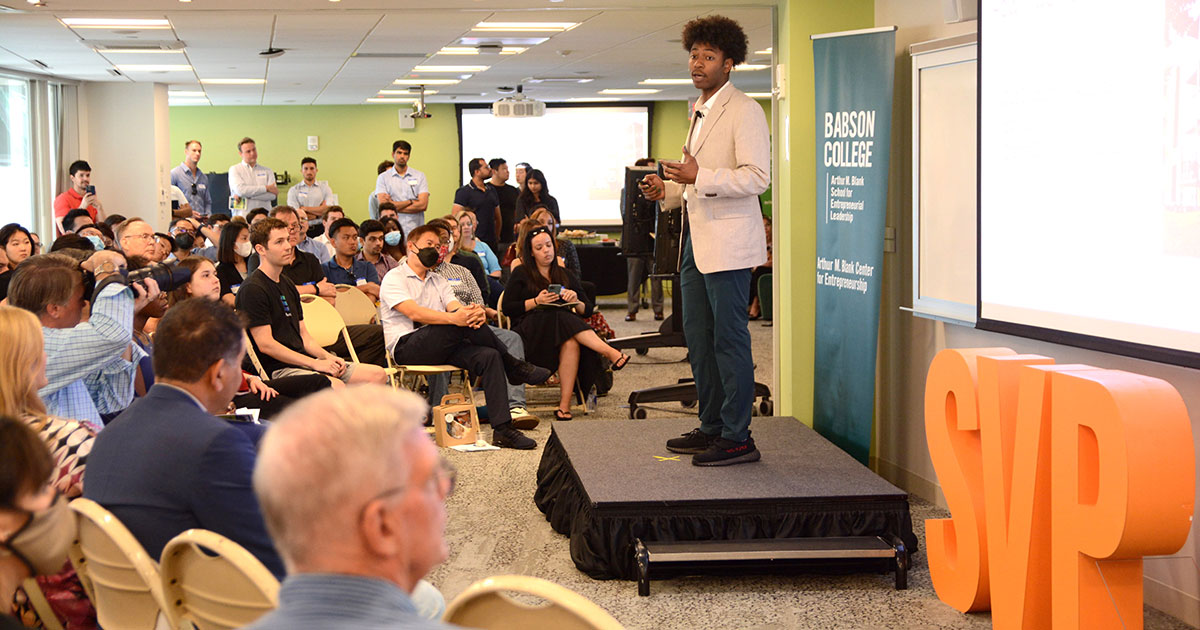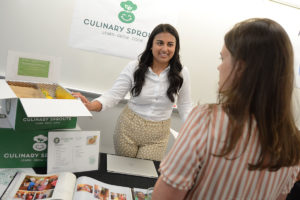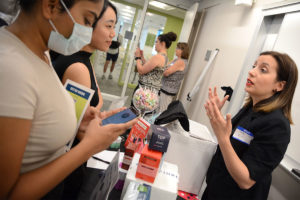An Entrepreneurial Showcase

When Philip Bell MBA’23 was starting Snippet, he thought of his grandparents. They raised him in South Carolina. “They were hard-working people,” he says.
But, for all of their hard work, they never had the chance to own their own home, missing out on one of the most effective ways for people to build wealth. “They were renters their whole lives,” Bell says. “They are still renting actually.”
Wanting to give everyone the chance to invest in real estate, Bell—along with Happiers Nyowane MSEL’22—is building Snippet. Offering what it calls “fractionalized” investing, the startup is seeking to allow people to buy shares of properties for as low as $50. “Seeing my grandparents work but not have access to wealth-building assets inspired me to create access for people like them,” Bell says.
Snippet was one of 13 ventures that just completed this year’s edition of Babson’s Summer Venture Program, produced by the Arthur M. Blank Center for Entrepreneurship. The intensive 10-week program, which grows participants’ entrepreneurial leadership skills while accelerating the development of their startups, concluded with the Summer Venture Showcase last week.

Held in-person for the first time since the pandemic (with even more people viewing online), the showcase took place at a packed Babson Boston, located on High Street with a 12th-floor view of South Station and downtown Boston out the window. Before a combined audience of more than 200 mentors, investors, professors, family members, and friends, the program’s entrepreneurs described the ventures they’ve spent the summer building.
It was a fitting end to an inspiring and productive program. “I can’t say enough good things about it,” says Swarna Shiv ’23, whose venture, Unsmudgeable, is developing a permanent anti-smudge coating for glasses. Shiv says the program pushed her out of her comfort zone. “They made me realize there are bigger possibilities for myself,” she says.
It’s Personal
Much like Bell, many of the Summer Venture Program participants had personal reasons for starting their ventures. In fact, the program encourages the entrepreneurs to explore these deep-seated motivations, what it calls the “personal why.”
“Starting a business is hard,” says Cindy Klein Marmer MBA’02, the director of the John E. and Alice L. Butler Launch Pad, who also serves as program director along with Eric Braun. “It is important to understand your personal why. Your why keeps you going. As you are building your business, that why keeps the passion ignited.”
Ceylan Rowe MBA’22 was inspired to start Fihri, which is addressing the not uncommon issue of students being unable to afford period products, after listening to a group of middle-school girls speak at the Massachusetts State House. At the time, Rowe was a commissioner with the MetroWest Commission on the Status of Women, and the girls described how eighth-graders would teach sixth-graders to roll up tissues if they didn’t have menstrual products.
“I can’t say enough good things about it. They made me realize there are bigger possibilities for myself.”
Swarna Shiv ’23, of the venture Unsmudgeable, about the Summer Venture Program
“That was obviously horrifying that period poverty was happening in Massachusetts,” says Rowe, whose venture opened a store in Wellesley and organizes drives for period products.
The roots of Culinary Sprouts go back to when Mareesa Ahmad MSEL’22 was growing up in Harlan, a small, rural town in Kentucky, where her parents taught her how to cook at a young age. Realizing that her peers didn’t have those skills, she began offering cooking lessons when she was 14.
She still remembers what she and a classmate cooked during the first lesson Ahmad gave: parmesan-crusted chicken, baked mac and cheese, and green beans with red bell peppers. Ahmad didn’t charge for that first lesson, but once moms in town began hearing about Ahmad’s cooking prowess, more lessons soon followed. Ahmad charged $20 a session.
Culinary Sprouts now continues her role as a culinary educator, by offering cooking kits for children. “It is so easy to put something in the microwave, or go through the drive-through. But, long term, it is not sustainable” Ahmad says. “My concern is just to get kids in the kitchen and learn.”
Wide-Ranging Endeavors
Attendees at the Summer Venture Showcase heard from a wide variety of startups. There were ventures dealing with auto parts and makeup, music and corporate gifts, urban farming and investment education.
Several were involved in scientific endeavors. Svyet is developing a handheld laser light device that will alleviate muscle and joint pain. “I was so fascinated by this technology,” says Paul Boutoussov MSEL’22, the Svyet founder. “I knew I had to get involved. When used properly, this laser light technology can do amazing things.”

Boutoussov is taking a different approach in how he hopes to bring Svyet to market. Instead of launching the device himself, he is bringing it to IPG Photonics, a company where Boutoussov has worked in the past, in the hopes it will take the project on. “We’re developing this and will bring it to the corporate board,” Boutoussov says.
YDot is a platform for storing, analyzing, and sharing insights from data. While Summer Venture participants were mostly Babson students and recent graduates, YDot’s co-founders, James Ho ’22 and Adi Sudhakar ’23, hail from nearby Olin College.
Away from their usual engineering peers at Olin, the pair had to change how they talk about YDot during the program. In short, they had to be less technical. “We learned to communicate the importance of the business to people who aren’t engineers,” Ho says. “It really helped us refine how to present our ideas.”
In the hopes of cutting down on the amount of plastic sitting in landfills, Alex Sull MBA’23 and his team at Lutra Regenerative Materials are developing a biodegradable plastic made out of seaweed.
The task of making the world a more sustainable place is a tall order, Sull admits. “We are trying to make an improvement,” he says. “We can’t save the world on our own. With enough people taking action, we can make positive change, and we just want to be a part of that.”
Sull was thankful for his time in the Summer Venture Program. He says the ventures offered each other advice and support as they made their way together through the triumphs and challenges of the entrepreneurial process. “We are all peers. We are sharing that struggle,” he says. “It is really a pleasure working with the cohort.”
Posted in Community, Entrepreneurial Leadership






